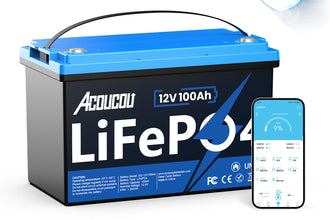

In recent years, there has been a growing interest in tiny houses as a sustainable and affordable housing option. With the rising awareness of climate change and the need to reduce carbon emissions, many tiny house owners are turning to solar power as a clean and renewable energy source to power their homes.
What Is Tiny House?
A tiny house is a small, compact living space that typically ranges from 100 to 400 square feet in size. Although there is no fixed standard, tiny houses rarely exceed 500 square feet. There are usually two types: tiny houses on a foundation and THOWs which are tiny houses installed on trailers or something similar to make them wheeled.
These homes are designed to maximize efficiency and utilize space-saving techniques to make the most of the available area. They often incorporate clever storage solutions and multi-functional furniture to create a comfortable living environment despite the limited square footage. Tiny houses have gained popularity as a sustainable and affordable housing option, appealing to those looking to downsize, reduce their environmental footprint, or live a more minimalist lifestyle.

Different Types Of Solar System For Tiny Houses
- Off-Grid Solar System
A complete off-grid solar system is equipped with all necessary equipment for generation, storage, and supply of solar energy. It relies on batteries to provide electricity when there is no sunlight. Compared with other solar systems, it does not rely on the grid.

Most tiny houses use off-grid solar system. Installing a solar system in a tiny house not only reduces the environmental impact but also offers greater energy independence and cost savings in the long run.
- Grid-Tie Solar System
The grid-tied solar system is connected to the utility company network. It can directly transmit electrical energy to the grid through grid-tied inverters without battery storage. When the electricity generated by solar panels is insufficient, the house can get electricity from the grid. However, its disadvantage is that it cannot work during power outages.
The Benefits of Installing Solar System In Tiny Houses
- Energy independence:Solar panels can provide tiny house owners with a reliable source of clean, renewable energy, reducing their reliance on the grid and fossil fuels.
- Cost savings:Once the initial investment in solar panels is made, tiny house owners can enjoy reduced or even eliminated electricity bills, saving money in the long run.
- Environmental impact:Solar power is a sustainable energy source that produces no greenhouse gas emissions, helping to reduce the carbon footprint of tiny houses and contribute to a cleaner environment.
- Off-grid capability:Solar panels can enable tiny houses to operate completely off the grid, providing power in remote or rural locations where traditional electricity access may be limited.
- Portability:For tiny house owners who frequently move or travel, a solar system can offer a portable and self-sustaining power source, allowing them to live off-grid while maintaining a mobile lifestyle.
- Increased property value:Installing a solar system can enhance the value and marketability of tiny houses, as it represents a desirable and eco-friendly feature for potential buyers or renters.
How To Build An Off-Grid Solar System For Your Tiny House
- Determine All Power You Need
First, list all the devices you want to use and the hours you would like to use each device. Then, you can calculate the power consumption of each device separately, as well as the total power consumption for one day. You can determine the size of the solar panel array and the batteries you need to store after knowing how many kilowatt hours will be used in a day.
In addition, you also need to know how many devices you can run simultaneously. It will help you calculate your real-time wattage requirements which you need to know in order to adjust the size of the inverter appropriately.
We have prepared some examples that you can use to estimate.
|
Device |
Rating (Watts) |
Time Of Daily Usage |
Energy Consumption (Watt-Hours) |
|
LED light Bulb |
10 |
5h |
50 |
|
Portable Fridge |
90 |
24h |
2160 |
|
Microwave |
1000 |
0.5h |
500 |
|
Washer |
250 |
0.5h |
125 |
|
Blender |
300 |
8min |
40 |
|
Notebook |
96 |
4h |
384 |
- Determine The Position Of Solar Panels
Solar panels are usually installed on the ground and roof. Installing on the ground is convenient for movement, adjustment, cleaning, etc., but it will take up your space. Installing on the roof can save space, but it is inconvenient to move and adjust the angle of the panels.
- Choose Your Racking System
Choose a suitable rack system to fix the solar panels according to your needs and installation location.
- Connected With Other Components
Battery, solar panels, inverter and controller are the basic components in the off-grid solar system. Connect them correctly and you will get a simple solar system.
Acoucou Provide Power For Your Tiny House




Installing a solar system in a tiny house is a practical and sustainable way to power a home while reducing environmental impact and energy costs. With careful planning, quality components, and professional installation, tiny house owners can harness the power of the sun to create a comfortable and eco-friendly living space.










